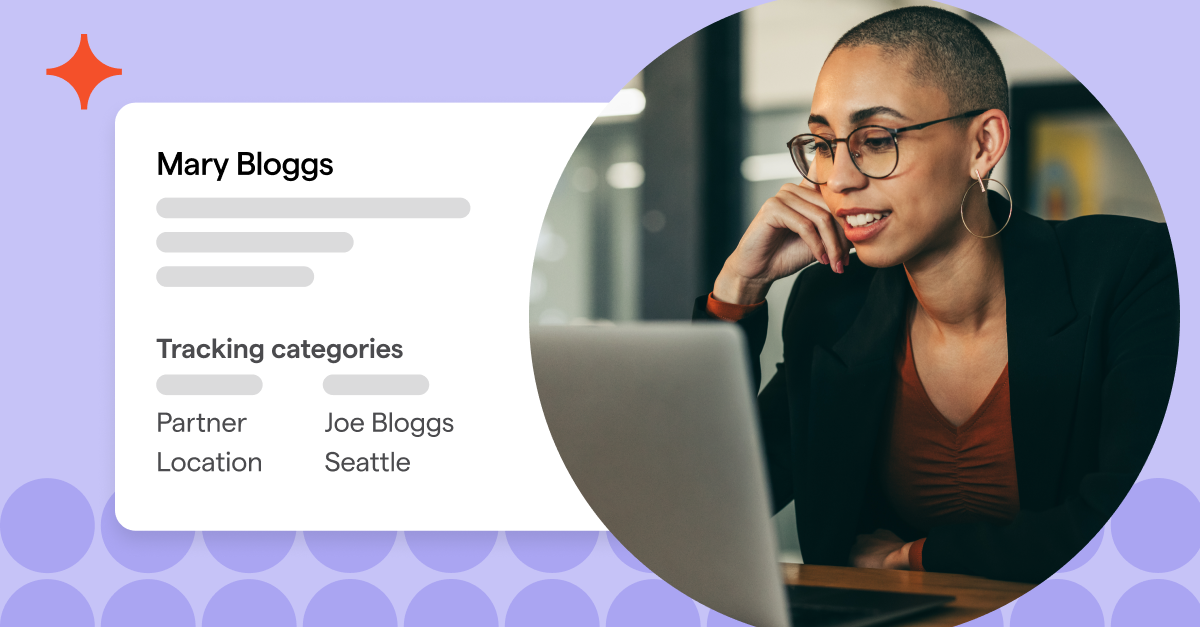How to collect and track client information efficiently

You need to build and maintain good relationships with your clients if you want to run a successful company or small business. But what happens if you don’t have the client information necessary to properly identify who these clients are and how you should work with them?
Worse, what if you do have this client information, but it’s scattered across multiple Google Sheets, Excel sheets, emails, and paper documents?
You would need to reassess the way you collect and keep track of your client information – and start implementing some changes in your organizational practices.
This is particularly relevant for service providers such as accountants, web designers, real estate agents, and bookkeepers who deal with multiple clients on a regular basis. By learning about the types of client information you need to collect, and how to manage this information efficiently, you’ll be able to:
Improve client relationships by tailoring customer experiences to fit individual needs.
Minimize errors with client communication.
Identify excellent clients you want to keep working with.
Identify problematic clients you shouldn’t keep working with.
Retain more clients.
Discover new services you can provide your clients.
Maximize your overall efficiency.
Let’s take a closer look at how to collect and track client information efficiently using client information forms and the online tools available today.
What is client information?
Client information includes any information about your clients that is used for completing sales transactions, invoicing, as well as delivering data, products, services, or information.
This information can be obtained from your clients through video chats, emails, phone conversations, messaging apps, and online forms. Eventually, however, all of this information should be collected on client information sheets to be entered into your database.
Types of client information service providers need to collect
So, what type of information should service providing businesses collect from their client list? While different industries may require unique types of information, service providers should concentrate on the following categories:
Identifying information
All business databases should keep basic listings of their clients’ personal information, including client names, job titles, and addresses. Having information such as their account numbers and tax identification number on file, as well as your own client numbers makes it much easier for you to look up each client in your database and identify them at a glance.
Business information
If you’re a bookkeeper or run an accounting firm, you’ll need details about your client’s business. Business information includes your client’s company name, its website, and any social media handles. For service providers such as bookkeepers, having access to financial statements like the balance sheet, profit and loss statement, and cash flow statement is vital.
You’ll also want to clearly define the industry your client works in as well as the mission statement and goals of their company. Identifying any known competitors in their business is also useful for coming up with strategies and other services that help your clients stay on top in their industry.
Contact information
Knowing the best ways to contact your clients is essential for establishing an effective business relationship. Be sure to collect their email addresses, cell phone numbers, home phone numbers, and mailing addresses. You’ll also want to list your point of contact (POC) so you know the key person in your company who started and handles communication with your client.
Making records of how each client prefers to be contacted (as well as the best times to reach them) is another useful piece of information to include here. Once your service team has access to this information, offering effective sales and consulting calls will be much easier.
Financial information
Collecting pertinent financial information from clients such as credit card numbers is obviously important for billing. If you’re using Ignition, you can easily do this using the software's client billing features. Access your client's billing details from one place and stay on top of invoicing easily.
Collecting information about a client’s budget for a certain project or service is important as well for figuring out pricing.
Client history
Everyone on your team who deals directly with your clients should have access to your client’s history with your company. This includes:
The type of services a client has used your company for in the past.
Their order history.
Any customer service complaints.
Written feedback from the client.
The timeline expectations each client has for your services.
Resources each client has to help with the services they need from you (records, receipts, and so on).
Keep records of your client preferences. You may want to include a section containing facts about each client’s family, hobbies, and interests that you can briefly review before your meetings to make your interactions more personal.
Keeping records of your previous interactions with clients helps to maintain a positive working relationship. You’ll also be able to assess whether or not you should keep doing business with a client based on your history together.
Web account information
These days, more and more business is conducted online. If you require your clients to keep online accounts, it’s useful for you to store client usernames and passwords (making sure to keep the passwords encrypted to protect confidential information). This can be done using a password manager, which enables users to share login details with other people, without revealing the sensitive information.
How to effectively collect client information
Once you come up with a list of all the data you need from your clients, it’s time to build an effective client intake form to gather information.
Using client information sheets and templates
A client information sheet (also called a ‘client information form’ or a ‘client intake form’) is a tool designed to obtain current information on new clients to perform your job. These forms may require clients to answer questions, provide paperwork, or supply sensitive information such as usernames and passwords. You can offer these forms online, making it easier for the information to be uploaded into your database.
Create form templates for your client information sheets by breaking down the process of providing relevant information into easy-to-follow steps. For instance, you can start with a short list of questions asking clients to supply their names, business titles, email addresses, and phone numbers before moving into more complex topics.
It’s important to be very specific in your instructions. For example, if you require clients to supply photocopies of specific forms of identification, state that you need a copy of their driver’s license instead of just ‘a photo ID’. Explaining why you need this information to do business will also encourage clients to supply the necessary documents or confidential information.
Break down your information requests into bite-size chunks. Create templates that only ask three to five questions to make the process of collecting client information less intimidating for your customers and reducing the amount of time necessary for filling out the intake forms.
If you do need to collect a lot of information, you can spread the process out over a period of time, by sending intake forms that focus on providing different types of information. This is particularly effective for accounting firms that need a lot of detailed information, such as tax forms and other documents.
It’s also a good idea to end each client information sheet with a checklist that covers all the information you requested. Clients can tick off each item, ensuring you receive all the information you need.
One way to make the process of collecting client data more efficient is to automate client information sheets and onboarding. Ignition offers a way to set up client information forms in Typeform for example, and automatically push the supplied details into Ignition via Zapier.

Investing in a customer relationship management software system
Customer relationship management (CRM) software helps manage your relationship with your customers by storing client data in a central database and giving team members in your organization permission to access the information.
This offers a good way to track your client information and organize your customer data to help you accomplish key goals. Because CRMs can store information on your current clients as well as leads, you’ll be able to see where every customer (or potential customer) falls in your business relationship. You’ll be able to schedule follow-up calls to enhance customer relations. And you’ll be able to update customer information as clients move from initial contact to full collaboration.
According to a survey conducted by Findstack, 74% of respondents said that CRM solutions provide better access to customer data, enabling them to provide more personalized service. This shows how important it is to efficiently collect and track client information to improve customer relationships.Over to you
Effectively communicating with your clients and providing excellent service means having the right client information available at your fingertips. That’s why developing effective client information forms to collect relevant client information – and having an effective CRM system to store and organize this information – is so important.
If you’re a professional service provider wanting to improve your client information collection and tracking tactics, Ignition can help. Our client engagement and commerce platform for accountants, bookkeepers, and professional service providers centralizes client information, giving you a clearer view of your client details and improving the customer experience.
Learn how we can help by watching an online demo of Ignition.


